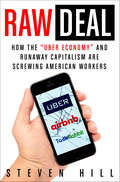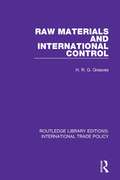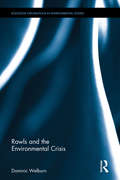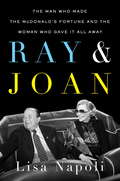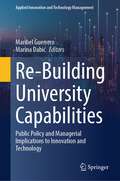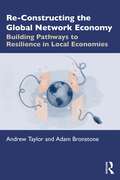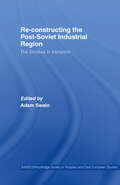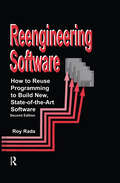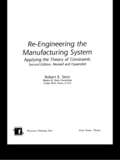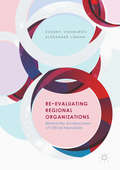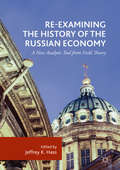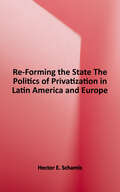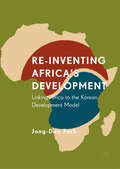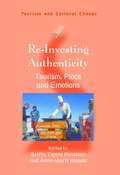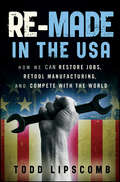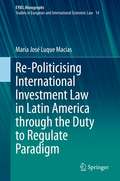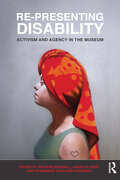- Table View
- List View
Raw Deal: How the "Uber Economy" and Runaway Capitalism Are Screwing American Workers
by Steven Hill"What's going to happen to my job?"That's what an increasing number of anxious Americans are asking themselves. The US workforce, which has been one of the most productive and wealthiest in the world, is undergoing an alarming transformation. Increasing numbers of workers find themselves on shaky ground, turned into freelancers, temps and contractors. Even many full-time and professional jobs are experiencing this precarious shift. Within a decade, a near-majority of the 145 million employed Americans will be impacted. Add to that the steamroller of automation, robots and artificial intelligence already replacing millions of workers and projected to "obsolesce" millions more, and the jobs picture starts looking grim. Now a weird yet historic mash-up of Silicon Valley technology and Wall Street greed is thrusting upon us the latest economic fraud: the so-called "sharing economy," with companies like Uber, Airbnb and TaskRabbit allegedly "liberating workers" to become "independent" and "their own CEOs," hiring themselves out for ever-smaller jobs and wages while the companies profit. But this "share the crumbs" economy is just the tip of a looming iceberg that the middle class is drifting toward. Raw Deal: How the "Uber Economy" and Runaway Capitalism Are Screwing American Workers,by veteran journalist Steven Hill, is an exposé that challenges conventional thinking, and the hype celebrating this new economy, by showing why the vision of the "techno sapien" leaders and their Ayn Rand libertarianism is a dead end. In Raw Deal, Steven Hill proposes pragmatic policy solutions to transform the US economy and its safety net and social contract, launching a new kind of deal to restore power back into the hands of American workers.
Raw Materials and International Control (Routledge Library Editions: International Trade Policy #22)
by H.R.G. GreavesThis book, first published in 1936, addresses the need for a comprehensive study of the development of international control in the field of certain vital commodities and services. It traces tendencies of development in government policy, and shows the growth of governmental or semi-governmental machinery of an international kind, that aims at regulating the production and distribution of raw materials, foodstuffs and services.
Rawabi
by Arthur I Segel Sarika Agrawal Nimrod Brandt Daniel Kuhagen Thomas Reithinger Margot EiranBashar Masri is developing the first new stand-alone Palestinian city 25 kilometers north of Jerusalem and 9 kilometers north of Ramallah in the West Bank on 6300 dunams (1556 acres) for 40,000 people with financial support from the Qatari investment authority and assistance from The Portland Trust. The first phase with 5000 homes along with a commercial city center, parks, schools and other public facilities will be available for occupancy in 2014. The eventual $1.5 billion new city has a host of start up problems including what should be built when and at what price along with infrastructure issues.
Rawbank's Illico Cash: Can "Fast Money" Overcome Cash Dependency in the DRC?
by Lauren H. Cohen Grace HeadingerThomas de Dreux-Br z , the Head of Strategy and Project Management at Rawbank Congo in the Democratic Republic of the Congo (DRC), was perplexed as he reviewed annual adoption rates for the bank's launch of Illico Cash 2.0. As the bank's mobile money app, Illico Cash literally promised "Fast Cash" for its users who also had a Rawbank account. Unlike most mobile money platforms on the African continent, Illico cash was backed by an established bank - not a technology or a telecommunications company. As he contemplated Rawbank's next strategic move, the future of Illico Cash, and the bank's future moves into digital payment systems in the DRC, he saw multiple challenges to Illico Cash's adoption in several regions across the DRC. Seeing lower-than-anticipated usage rates, he wondered if local preferences for cash seemed just too powerful to overcome. Can the bank's digital payments efforts overcome hurdles in local infrastructure, entrenched interests that favored cash, and currency instability? Would crafting a digital ecosystem be a worthwhile investment for Rawbank without a wholesale structural shift in beliefs?
Rawls and the Environmental Crisis (Routledge Explorations in Environmental Studies)
by Dominic WelburnThe liberal political theorist John Rawls, despite remaining largely silent on ‘green concerns’, was writing during a time of increasing awareness that the ecological stability of the earth is being compromised by human activity. Rawls’s reluctance to engage with such concerns, however, has not stopped several scholars attempting to ‘extend’, or ‘expand’, his works to incorporate this newfound fear for the ecosystems that support human life. But why Rawls? What is to be gained from developing the ideas of a theorist whose primary aim was to establish a system of justice for contemporaneous, rational, and reasonable citizens of a liberal polity? This research monograph offers a critical consideration of the contextual framework within John Rawls’s Political Liberalism and considers its compatibility with the conceptual process of ‘greening’. Rawls and the Environmental Crisis argues that Rawls’s perceived neutrality on green concerns is representative of a widespread societal indifference to environmental degradation and describes the plurality of methodological and ethical approaches undertaken by green political theorists in analyzing the contribution Rawls’s theory makes to environmental concerns. Addressing a series of key debates within contemporary political philosophy regarding a wider frustration with liberal theory in general, Rawls and the Environmental Crisis will be of great interest to researchers in contemporary political philosophy, environmental ethics, green political theory, stewardship theory, and those interested in renewing existing conceptions of deliberative democracy.
Ray & Joan: The Man Who Made the McDonald's Fortune and the Woman Who Gave It All Away
by Lisa NapoliThis fall, the movie The Founder, starring Michael Keaton, will focus the spotlight on Ray Kroc, the man who amassed a fortune as the chairman of McDonalds. But what about his wife, Joan, the woman who became famous for giving away his fortune? Lisa Napoli tells the fascinating story behind the historic couple.Ray & Joan is a quintessentially American tale of corporate intrigue and private passion: a struggling Mad Men-era salesman with a vision fora fast-food franchise that would become one of the world's most enduring brands, and a beautiful woman willing to risk her marriage and her reputation to promote controversial causes that touched her deeply.Ray Kroc was peddling franchises around the country for a fledgling hamburger stand in the 1950s--McDonald's, it was called--when he entered a St. Paul supper club and encountered a beautiful young piano player who would change his life forever. The attraction between Ray and Joan was instantaneous and instantly problematic. Yet even the fact that both were married to other people couldn't derail their roller coaster of a romance.To the outside world, Ray and Joan were happy, enormously rich, and giving. But privately, Joan was growing troubled over Ray's temper and dark secret, something she was reluctant to publicly reveal. Those close to them compared their relationship to that of Elizabeth Taylor and Richard Burton. And yet, this volatility paved the way for Joan's transformation into one of the greatest philanthropists of our time. A force in the peace movement, she produced activist films, books, and music and ultimately gave away billions of dollars, including landmark gifts to the Salvation Army and NPR.Together, the two stories form a compelling portrait of the twentieth century: a story of big business, big love, and big giving.From the Hardcover edition.
Ray White
by Boris Groysberg Tricia GreggRay White is an Australian real estate business that has been owned and operated by the White family for four generations. The business has expanded and prospered. However, as the industry faces new challenges and opportunities, how should the White family respond? This case also describes how the company has dealt with the COVID-19 crisis.
Raymond James Financial
by David B. GodesRaymond James Financial (RJF) currently sells financial services through two channels. It is considering adding a third in the "middle" of the other two. The current strategy has one channel with employees and another with independent contractors. These attract very different financial advisers with various interests. The new proposal would create a "quasi" employee who would have some of the benefits of being an employee, but enjoy a lot more freedom than a traditional employee in running his or her own business. Raises many important issues at a general level as well as those specific to service industries. First, students must decide how many different services the firm should offer. How targeted should the firm be? How does the firm ensure that the right people select the right offering? Which salespeople should sell in which model? Given the competitive dynamic, the class is able to discuss why an adviser comes to work at RJF as compared with another firm and what this means for his or her business. Offers an opportunity to apply marketing principles to a human resources problem and discuss how test markets differ between business and consumer marketing and between products and services.
Raymond Mushroom Corp.
by Benson P. Shapiro Julia StifflerIn April 1984 Deborah Raymond, president of Raymond Mushrooms was deciding whether or not to raise prices on Raymond canned mushrooms in conjunction with an advertising promotional program to build consumer preference.
Razões pelas quais fui descartado: A Jihad Da Economia
by Jo M. Sekimonyo Ellen Cristina Bussaglia da SilvaQue diabo me possuiu para que eu escrevesse este livro? Bem, depois de vagar, dando meus trocados aos egos e asfixiados pela pobreza, em todos os países por onde fui abençoado ou amaldiçoado por viajar, me perguntava repetidamente, o que mais posso fazer? Estava cansado das palhaçadas dos guardiões do capitalismo, irritado com a incapacidade dos que se chamam a reencarnação de Karl Marx e exausto de esperar por um super-herói. Escrevi este livro para despertar a consciência do público em geral e lançar um pensamento que provoca soluções para a dureza sócio-econômica global. Histórias sobre desigualdade são contadas o tempo todo. No entanto, decidi mexer no debate por um novo caminho, esperamos que tenha sucesso. Este livro é para todos os que estão cheios do status quo e se decepcionaram com os intelectuais imbecis. Deixe-me primeiro tranqüilizar a maioria das pessoas que podem se intimidar ao pegar meu livro, uma vez que souberem que é um livro político e econômico. É mais fácil responder a pergunta sobre o que o livro fala. Não há cálculos ou gráficos. Deixei aos druidas da economia a necessidade de inflar seus egos e a todos os sabichões que desorientam o mundo com teorias loucas que não condizem com a realidade. Meu livro é um caso contra o status quo sócio-econômico, uma volta de montanha-russa pela nuvem de cinzas vulcânicas para todos nós que falimos, nos ferimos e perdemos as esperanças da forma de economia dominante atual: o capitalismo. E então, seguro a mão do leitor pelo novo paradigma do século XXI que mudará tudo. E bem no final, trago a solução que despertará as massas. Espero que o único desafio deste livro seja a terminologia e os conceitos que apresento ao leitor ao qual ele deve se ajustar, tal como o Etosismo.
Re-Building University Capabilities: Public Policy and Managerial Implications to Innovation and Technology (Applied Innovation and Technology Management)
by Marina Dabić Maribel GuerreroAlthough most universities could be considered bureaucrat organizations, the accumulated knowledge reveals that universities try to adapt their core activities and technological innovation processes to face the current socio-economic challenges. This book explores the ways in which universities have re-built multiple capabilities to support the development of applied innovation and manage new technologies. Concretely, this book (1) theoretically addresses the university managers’ view for re-building university capabilities due to the public policy agendas demands; and (2) empirically addresses the documentation of experiences and strategies adopted by universities in different contexts to achieve public policy agendas. These universities strategies include re-build entrepreneurial, innovative, digital, and sustainable capabilities. This book encourages researchers, scholars, academics, students and policy makers to re-think how universities are expanding equal opportunities related to high-quality higher education, innovative/entrepreneurial graduate options, and contributing to sustainable societal advance and well-being through research and community engagement.
Re-Constructing the Global Network Economy: Building Pathways to Resilience in Local Economies
by Andrew Taylor Adam BronstoneThis book looks at how to build more resilience into socio-economic networks within local communities. Understanding the relationships between attachment to place, complex systems and patterns of knowledge creation is not straightforward, but these relationships are emerging as the challenges that we face in bridging the gap between the social worlds that we inhabit and an emerging digital world. These issues have been brought into even sharper focus through changes resulting from the COVID-19 pandemic. On the one hand, forced familiarity with communication technologies is driving globalisation forwards, whilst on the other, the crisis has created awareness of dependencies and heightened desires for more local solutions. Plenty of books have been written about the rise of digital networks and the decline of local communities. This book takes a radical approach by identifying how these trends fit together and provides examples of how digital networks can be made to work for the local as well as the global economy. Using a case study approach, the book offers a clear-sighted view of the role of relational capital in specific places and organisations and shows the transformational impact that they can have at a micro level. The book deliberately seeks to shake up preconceived ideas and is ideal for strategy practitioners and policy makers within governments and NGOs involved in connecting local to wider network economies.
Re-Constructing the Post-Soviet Industrial Region: The Donbas in Transition (BASEES/Routledge Series on Russian and East European Studies)
by Adam SwainThis book examines the political economy of attempts to restructure the Donbass, one of the Soviet Union's most important 'old economy' 'rustbelt' industrial regions. It shows how local interest groups have successfully frustrated the central government's and the World Bank's proposed market-oriented restructuring, and how a manufacturing-based regional economy is surviving, partially, with restructuring postponed.
Re-Engineering Software: How to Re-Use Programming to Build New, State-of-the-Art Software
by Roy RadaCreating software of any kind is an enormously expensive proposition, whether for internal use or commercial application. The range of activities involved in engineering and creating software are mind-boggling in complexity. Yet, every time new software is developed, most programmers start from scratch without considering what might be re-used or salvaged from existing programs. Re-Engineering Software addresses the principles, approaches, support systems, underlying methodologies, and real case examples for re-using (and thus building on) previously existing software.
Re-Engineering the Manufacturing System: Applying the Theory of Constraints, Second Edition
by Robert E. SteinAn information systems trailblazer in the domains of decision support and factory and supply chain synchronization, the second edition of Re-Engineering the Manufacturing System stays true to its title, once again bestowing uniquely straightforward instructions for designing, installing, and operating manufacturing information systems. This updated and expanded source takes care to clarify the often blurred concepts of synchronization and optimization and offers implementation advice from four discrete angles to yield better bottom-line results. It shows how to exploit an information system, rolling ERP system implementation into the TOC framework to promote profit materialization.
Re-Evaluating Regional Organizations
by Alexander Libman Evgeny VinokurovThis book re-evaluates the regional organizations landscape and discusses how organizations with similar mandates can exercise strikingly different goals. Even economic organizations, which do not produce any outcomes in terms of economic cooperation, can be valuable for their members or individual stakeholders. The book's argument is supported by a combination of quantitative and qualitative methods. It employs a novel dataset of 60 regional organizations to establish correlations between members' goals and their characteristics. More than a dozen case studies in Latin America, Africa, Middle East, Southeast Asia, and post-Soviet Eurasia illustrate the theoretic arguments of how particular types of regional organizations come into existence and evolve. Finally, the book examines the remarkable resilience of regional organizations and considers the conditions under which the stakeholders are willing to abandon support.
Re-Examining the History of the Russian Economy: A New Analytic Tool from Field Theory
by Jeffrey K. HassThis book explores the application of field theory (patterns of interaction) to Russian economic history, and how social and political fields mediate the influences of institutions, structures, discourses and ideologies in the creation and dissemination of economic thinking, theory and practice. Using focused cases on Russia's economy from the mid-nineteenth century to the present, Hass and co-authors expand the empirical basis of field studies to provide new material on Russian economic history. The cases are divided into two complementary halves: i) The role of fields of institutions, discourses, and structures in the development of Russian economic thought, especially economic theories and discourses; and ii) The role of fields in the real adoption and implementation of policies in Soviet and Russian economic history. With developed discussion of fields and field theory, this book moves beyond sociology to demonstrate to other disciplines the relation of fields and field theory to other frameworks and methodological considerations for field analysis, as well as providing new empirical insights and narratives not as well-known abroad.
Re-Forming the State: The Politics of Privatization in Latin America and Europe (Interests, Identities And Institutions In Comparative Politics Ser.)
by Hector E. SchamisWith evidence drawn from Argentina, Chile, Mexico, Great Britain, and Hungary, Re-forming the State examines the processes leading to, and the political effects of, market reform experiments and focuses specifically on the patterns of collective action and coalition building that drive privatization. The author's argument calls into question established approaches in the discipline of economics and in the fields of comparative and international political economy. The experience of privatization shows that the public and the private are neither contradictory nor mutually exclusive spheres and that power relations between them are not necessarily zero-sum. To stress the point, the author borrows from the literature on state formation, which has extensively examined the historical processes of key private groups. The evidence presented shows why and how, by restructuring coalitional and institutional arenas, the state uses marketization to generate political order and distribute political power. Thus, the author specifies the conditions under which political change is conceived in terms of and channeled through economic policy; in other words, how the state is "re-formed" through privatization. Re-forming the State thus highlights how privatization is simultaneously a movement from public to private, but also a movement from non-state to state, as the reduction of state assets leads to institutional changes that increase state capacities for defining and enforcing property rights, extracting revenue, and centralizing administrative and political resources. Hector E. Schamis is an Assistant Professor of Government, at Cornell University.
Re-Inventing Africa's Development: Linking Africa to the Korean Development Model
by Jong-Dae ParkThis open access book analyses the development problems of sub-Sahara Africa (SSA) from the eyes of a Korean diplomat with knowledge of the economic growth Korea has experienced in recent decades. The author argues that Africa's development challenges are not due to a lack of resources but a lack of management, presenting an alternative to the traditional view that Africa's problems are caused by a lack of leadership. In exploring an approach based on mind-set and nation-building, rather than unity – which tends to promote individual or party interests rather than the broader country or national interests – the author suggests new solutions for SSA's economic growth, inspired by Korea's successful economic growth model much of which is focused on industrialisation. This book will be of interest to researchers, policymakers, NGOs and governmental bodies in economics, development and politics studying Africa's economic development, and Korea's economic growth model.
Re-Investing Authenticity
by Anne Marit Waade Britta Timm KnudsenFrom the highly influential concept of 'staged authenticity' discussed by Dean MacCannell, to the general claim of longing for authenticity on behalf of all Western consumers, made by Joseph Pine and James Gilmore, it is obvious that the concept of authenticity is still worth considering. This ground-breaking book re-thinks and re-invests in the notion of authenticity as a surplus of experiential meaning and feeling that derives from what we do at / in places. In Re-investing Authenticity - Tourism, Place and Emotions international scholars representing a wide range of disciplines, examine contemporary performances of authenticity in travel and tourism practices: From cultural place branding to individual pilgrim performances; from intensified experiences of imaginary crime scenes to the rhetorical features of the encounter with the traumatic and; from photography performing memories of place to experiences of wilderness producing excitement, this book demonstrates how the feeling of authenticity within places is produced.
Re-Made in the USA
by Todd LipscombA business-based rallying cry to reclaim the US economyThere is a nagging feeling that the U.S. is slipping as a nation and our people are powerless to do anything to fix it. Issues such as jobs, product quality and safety, wages, the economy, and our status as the world's leading superpower are all tied together with our massive trade deficit.Re-Made in the USA addresses these issues using the author's firsthand observations and analysis, and offers a practical plan for how we can get our economy and global status back.A practical action plan to get the nation back on trackIf you're worried about America when you start reading this book, you'll finish feeling empoweredTodd Lipscomb has a distinguished record in international businessAmerica's future does not have to be on the decline. In inspiring terms, Re-Made in the USA lays out the choice Americans have between doing nothing, and doing what we do best-rolling up our sleeves and working hard to fix the problem.
Re-Politicising International Investment Law in Latin America through the Duty to Regulate Paradigm (European Yearbook of International Economic Law #14)
by María José Luque MacíasThis book offers insights into how international investment law (IIL) has frustrated states’ protection of human rights in Latin America, and IIL has generally abstained from dealing with inter-regime frictions. In these circumstances, this study not only argues that IIL should be an object of contention and debate (‘politicisation’). It also contends that Latin American countries have traditionally been the frontrunners in the politicisation of international legal instruments protecting foreign investment, questioning whether the paradigms informing their claims’ articulation are adequate to frame this debate. It demonstrates that the so-called ‘right to regulate’ is the paradigm now prevalently used to challenge IIL, but that it is inadequate from a human rights perspective. Hence, the book calls for a re-politicisation of IIL in Latin America through a re-conceptualization of how states’ regulation of foreign investment is understood under international human rights law, which entails viewing it as an international duty. After determining what the ‘duty to regulate’ constitutes in relation to the right to water and indigenous peoples’ right to lands based on human rights doctrine, the book analyses the extent to which Latin American countries are currently re-politicising IIL through an articulation of this international duty, and arbitral tribunals’ responses to their argumentative strategies. Based on these findings, the book not only proposes investment treaties’ reform to anchor the ‘duty to regulate’ paradigm in IIL, and in the process, to induce tribunals’ engagement with human rights arguments when they come to underpin respondent states’ defences in investor-state dispute settlement (ISDS). In addition, drawing upon the (now likely defunct) idea of creating a regional ISDS tribunal, the book briefly reflects on options available to such a tribunal in terms of dealing with troubling normative/institutional interactions between regimes during ISDS proceedings.
Re-Presenting Disability: Activism and Agency in the Museum
by Rosemarie Garland-Thomson Richard Sandell Jocelyn DoddRe-Presenting Disability addresses issues surrounding disability representation in museums and galleries, a topic which is receiving much academic attention and is becoming an increasingly pressing issue for practitioners working in wide-ranging museums and related cultural organisations. This volume of provocative and timely contributions, brings together twenty researchers, practitioners and academics from different disciplinary, institutional and cultural contexts to explore issues surrounding the cultural representation of disabled people and, more particularly, the inclusion (as well as the marked absence) of disability-related narratives in museum and gallery displays. The diverse perspectives featured in the book offer fresh ways of interrogating and understanding contemporary representational practices as well as illuminating existing, related debates concerning identity politics, social agency and organisational purposes and responsibilities, which have considerable currency within museums and museum studies. Re-Presenting Disability explores such issues as: In what ways have disabled people and disability-related topics historically been represented in the collections and displays of museums and galleries? How can newly emerging representational forms and practices be viewed in relation to these historical approaches? How do emerging trends in museum practice – designed to counter prejudiced, stereotypical representations of disabled people – relate to broader developments in disability rights, debates in disability studies, as well as shifting interpretive practices in public history and mass media? What approaches can be deployed to mine and interrogate existing collections in order to investigate histories of disability and disabled people and to identify material evidence that might be marshalled to play a part in countering prejudice? What are the implications of these developments for contemporary collecting? How might such purposive displays be created and what dilemmas and challenges are curators, educators, designers and other actors in the exhibition-making process, likely to encounter along the way? How do audiences – disabled and non-disabled – respond to and engage with interpretive interventions designed to confront, undercut or reshape dominant regimes of representation that underpin and inform contemporary attitudes to disability?
Re-THINK-ing THINK: The Electric Car Company
by David Kiron Joseph B. LassiterOn January 5, 2010, 48-year-old Richard Canny was on his way to meet the Governor of Indiana. He was reading his newly issued press release, announcing that THINK planned to start automobile production in Elkhart County, Indiana and to launch its THINK City battery-operated electric vehicle (EV) in the North American market. The announcement boldly outlined plans to invest $43.5 million in a factory that could begin assembling vehicles in early 2011 and that was sized for a manufacturing capacity for more than 20,000 vehicles per year. A proven automotive industry executive, but a first-time entrepreneur, Canny was CEO of Think Global AS (THINK), a privately held Norwegian maker of battery-operated electric vehicles (EVs) that were rechargeable through residential electrical power outlets. With this announcement, Canny was committing the company to support the broad North American launch of its line of EVs, among the very first commercially available, highway-approved safe cars in the world that produced zero greenhouse gas tailpipe emissions.
Re-THINK-ing THINK: The Electric Car Company
by David Kiron Joseph B. LassiterOn January 5, 2010, 48-year-old Richard Canny was on his way to meet the Governor of Indiana. He was reading his newly issued press release, announcing that THINK planned to start automobile production in Elkhart County, Indiana and to launch its THINK City battery-operated electric vehicle (EV) in the North American market. The announcement boldly outlined plans to invest $43.5 million in a factory that could begin assembling vehicles in early 2011 and that was sized for a manufacturing capacity for more than 20,000 vehicles per year. A proven automotive industry executive, but a first-time entrepreneur, Canny was CEO of Think Global AS (THINK), a privately held Norwegian maker of battery-operated electric vehicles (EVs) that were rechargeable through residential electrical power outlets. With this announcement, Canny was committing the company to support the broad North American launch of its line of EVs, among the very first commercially available, highway-approved safe cars in the world that produced zero greenhouse gas tailpipe emissions.
